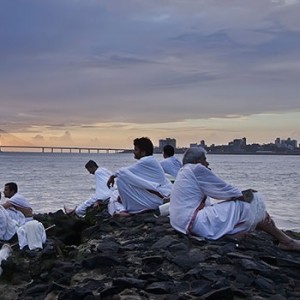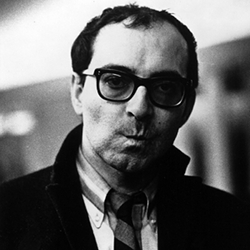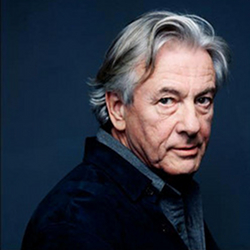
TIFF Romania Review: Ship of Theseus (2012)

Cast: Aida El-Kashef, Sohum Shah, Neeraj Kabi
Director: Anand Gandhi
Country: India
Genre: Drama
Official Trailer: Here
Editor’s Note: Ship of Theseus was awarded Best Film at the Transilvania International Film Festival. See here for our rundown of the festival programme; our full reviews of the films in and out of competition can be found here
After many years of hardy service, grandfather’s axe had to have its worn blade replaced, its shiny new counterpart returning the tool to its original vitality and power. Years later still, the weathered handle, splintered and frayed from usage, was exchanged for a sturdy new shaft. Each of its parts replaced, does what we now call “grandfather’s axe” have any legitimate claim to that title? Does that object still exist despite, superficially at least, no longer being even partially the same? It’s the simplest incarnation of an age-old paradox of identity, the more sophisticated and familiar idea of which lends its name to Anand Gandhi’s Ship of Theseus: is a ship, gradually mended plank by plank, still the same ship?
It would be easy for a film predicated on philosophically-driven premises such as these to become navel-gazing; not so for Gandhi’s, which brims with wit and warmth in each of the characters it constructs. Were it not for the steely conviction of the thematic matter, the movie’s deeper content might seem almost an afterthought, such is the storyteller’s sensibility that shines through at every turn.
 It doesn’t take an advanced understanding of cytology to know that the body’s cells multiply in order to replace themselves, from the constant replenishment of stomach cells to the slow restructuring of bone tissue. Are we not ourselves, then, a more complex embodiment of this paradox? It’s this crisis of identity on which Gandhi’s film establishes itself, earnestly asking just what it is that defines the self and makes each human unique. Departing from the one-act structure that has earned his stage work so much attention, the budding filmmaker here tells three unconnected tales of organ donation, simplifying the scientific quandary while retaining the essence of the questions it asks. Of course, most would respond immediately to this existential musing with the simple counterpoints of memory or the particularities of personality that define us, which remain intact no matter how much our physical being replenishes. It’s these qualities in which Gandhi is far more interested, and around which the slow-burn drama of his respective stories revolves.
It doesn’t take an advanced understanding of cytology to know that the body’s cells multiply in order to replace themselves, from the constant replenishment of stomach cells to the slow restructuring of bone tissue. Are we not ourselves, then, a more complex embodiment of this paradox? It’s this crisis of identity on which Gandhi’s film establishes itself, earnestly asking just what it is that defines the self and makes each human unique. Departing from the one-act structure that has earned his stage work so much attention, the budding filmmaker here tells three unconnected tales of organ donation, simplifying the scientific quandary while retaining the essence of the questions it asks. Of course, most would respond immediately to this existential musing with the simple counterpoints of memory or the particularities of personality that define us, which remain intact no matter how much our physical being replenishes. It’s these qualities in which Gandhi is far more interested, and around which the slow-burn drama of his respective stories revolves.
It would be easy for a film predicated on philosophically-driven premises such as these to become navel-gazing; not so for Gandhi’s, which brims with wit and warmth in each of the characters it constructs. Were it not for the steely conviction of the thematic matter, the movie’s deeper content might seem almost an afterthought, such is the storyteller’s sensibility that shines through at every turn. Aaliya, the blind photographer we first follow, is steadfast in her artist conviction despite the protestations of her boyfriend, who edits the images on her behalf; Maitreya, a conscientious monk, fights for his principles as his body rebels against them; Navin, a self-serving young stockbroker, discovers a gruesomely physical incarnation of his subjugation of the poorer. These scenarios give way to complex ruminations on identity and individuality, humanity and spirituality, kindness and compassion, but it’s as though these arise as the mere by-products of Gandhi’s basic human drama.
With cinematographer Pankaj Kumar and composers Naren Chandavarkar and Benedict Taylor, Gandhi counterbalances his rich dialogue scenes with sequences of the most astonishing beauty, jaw-dropping tableaus of his characters in simple transit across the magisterial beauty of the world. It’s in moments like these that the movie’s uncanny power to stumble upon is most profoundly expressed, its characters and their crises framed against the enormous canvass of all existence as though to give us time to come to terms with ourselves just as they are.
 The strength of character required to sustain such drama—particularly in a film of this length, each of its thirds reaching fifty minutes—is not insignificant, and Gandhi is fortunate to have found actors this accomplished. Aida El-Kashef’s turn as Aaliya is nothing short of mesmeric, the childlike sense of wonder spread across her face as she “sees” the world through her camera just as engrossing as any image she captures. It’s Neeraj Kabi as Maitreya who steals the show in the finest of the three stories, however, his ethical anguish beautifully expressed in a remarkably demanding physical performance. This may be a movie that concerns itself with deep-seated concepts of metaphysics and intimate interrogations of existentialism, but it’s channelled through humans as recognisable and real to us as we ourselves, carried through dialogue alive with the truth of human interaction.
The strength of character required to sustain such drama—particularly in a film of this length, each of its thirds reaching fifty minutes—is not insignificant, and Gandhi is fortunate to have found actors this accomplished. Aida El-Kashef’s turn as Aaliya is nothing short of mesmeric, the childlike sense of wonder spread across her face as she “sees” the world through her camera just as engrossing as any image she captures. It’s Neeraj Kabi as Maitreya who steals the show in the finest of the three stories, however, his ethical anguish beautifully expressed in a remarkably demanding physical performance. This may be a movie that concerns itself with deep-seated concepts of metaphysics and intimate interrogations of existentialism, but it’s channelled through humans as recognisable and real to us as we ourselves, carried through dialogue alive with the truth of human interaction.
There’s evidence aplenty of Gandhi’s theatrical origins in that dialogue—in its depth of humour, in the sly ways it turns appreciably everyday conversation to surprisingly rich philosophical debate, in the way it transfixes the attention and guides the viewer’s eye—but Ship of Theseus is an unquestionably cinematic work. With cinematographer Pankaj Kumar and composers Naren Chandavarkar and Benedict Taylor, Gandhi counterbalances his rich dialogue scenes with sequences of the most astonishing beauty, jaw-dropping tableaus of his characters in simple transit across the magisterial beauty of the world. It’s in moments like these that the movie’s uncanny power to stumble upon is most profoundly expressed, its characters and their crises framed against the enormous canvass of all existence as though to give us time to come to terms with ourselves just as they are. At the time we die, our body may not share a single cell with the one in which we were born. Perhaps its art like Ship of Theseus, and the ability to appreciate it and to cherish it and to learn from it throughout our lives, that defines us.
Related Posts
![]()
Ronan Doyle
![]()
Latest posts by Ronan Doyle (see all)



























